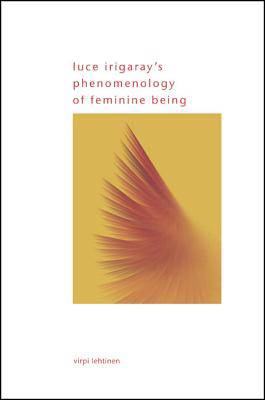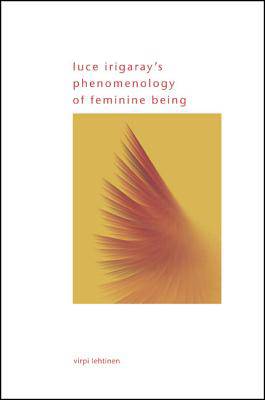
Door een staking bij bpost kan je online bestelling op dit moment iets langer onderweg zijn dan voorzien. Dringend iets nodig? Onze winkels ontvangen jou met open armen!
- Afhalen na 1 uur in een winkel met voorraad
- Gratis thuislevering in België vanaf € 30
- Ruim aanbod met 7 miljoen producten
Door een staking bij bpost kan je online bestelling op dit moment iets langer onderweg zijn dan voorzien. Dringend iets nodig? Onze winkels ontvangen jou met open armen!
- Afhalen na 1 uur in een winkel met voorraad
- Gratis thuislevering in België vanaf € 30
- Ruim aanbod met 7 miljoen producten
Zoeken
Omschrijving
The reception of Luce Irigaray's ideas about feminine identity has centered largely on questions of essentialism, whether criticizing this as a destructive flaw or interpreting it in strategic or pragmatic terms. Staking out an alternative approach, Virpi Lehtinen finds in the phenomenology of Husserl and Merleau-Ponty a framework for what she characterizes as dynamic essentialism, which seeks to account for the complex networks of lived experience: embodied, affective, and spiritual relations to oneself, to others, and to the world. Rather than prescribing one norm to which all women should conform, Lehtinen argues, Irigaray's work exemplifies how each individual woman in her own way contributes to a norm of femininity that is both unique and singular but also connected to the existential styles of past, present, and future others.
Specificaties
Betrokkenen
- Auteur(s):
- Uitgeverij:
Inhoud
- Aantal bladzijden:
- 280
- Taal:
- Engels
- Reeks:
Eigenschappen
- Productcode (EAN):
- 9781438451275
- Verschijningsdatum:
- 1/06/2014
- Uitvoering:
- Hardcover
- Formaat:
- Genaaid
- Afmetingen:
- 160 mm x 236 mm
- Gewicht:
- 576 g

Alleen bij Standaard Boekhandel
+ 320 punten op je klantenkaart van Standaard Boekhandel
Beoordelingen
We publiceren alleen reviews die voldoen aan de voorwaarden voor reviews. Bekijk onze voorwaarden voor reviews.











